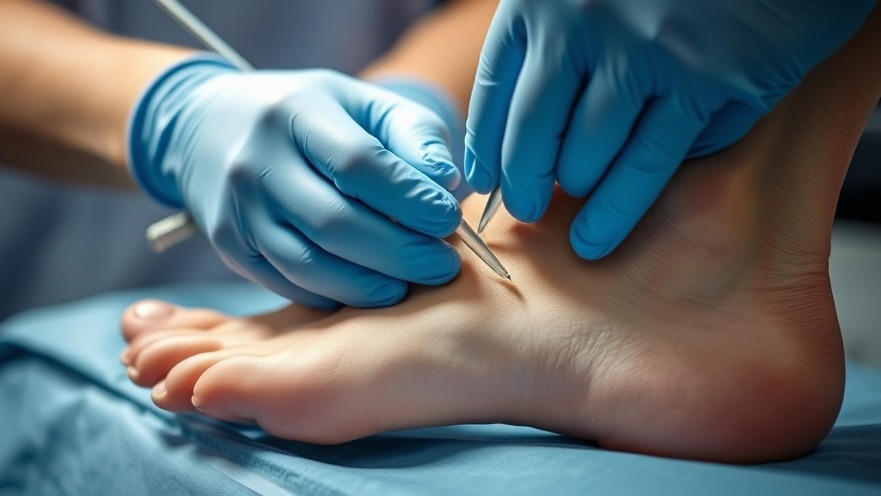
Understanding the Risks of Toe Injuries and Diabetes
For individuals navigating the challenges of diabetes, foot care becomes a paramount aspect of health management. When a shard of glass or any foreign body penetrates the skin, it can lead to severe complications, especially for those with diabetes. This audience faces heightened risks of infections, ulcers, and, in extreme cases, amputations due to the potential for slowed healing. The importance of effective toe care cannot be overstated, as proper attention can avert more serious health issues down the road.
In UPDATE: Shard of glass in FOOT🫨, the discussion dives into diabetic foot care, exploring key insights that sparked deeper analysis on our end.
The Importance of Regular Foot Assessments
Regular assessments of the feet, especially focusing on the toes, are vital for managing diabetic foot health. Specialists recommend routine checks to identify issues such as calluses, blisters, and fungal infections which can escalate quickly for diabetics. Simple practices, such as daily foot inspections and utilizing resources like SweetFeet Foot Care or Sole Mates Podiatry, can significantly contribute to sustaining foot health and preventing severe conditions from developing.
Effective Remedies for Blisters and Corns
Foot blisters and corns are common ailments that can be both painful and debilitating. Corns, in particular, are caused by excessive friction, making it essential for individuals to be educated on proper foot care, especially if they play sports or are often on their feet. Treatments such as corn on toe removal techniques or at-home remedies for foot blisters can provide relief. For practitioners helping these patients, the following home remedies work wonders:
Soaking and Cleaning: Soaking the affected foot in warm water with Epsom salt can offer immediate relief, softening the skin and reducing pain.
Proper Moisturization: Applying gentle, fragrance-free moisturizers helps combat dryness, particularly for diabetics prone to cracked heels and calluses.
Padding and Protection: Special corn pads or blister bandages protect the affected area from further irritation, while allowing it to heal naturally.
Preventative Measures in Diabetes Foot Care
Preventative measures should be emphasized to avoid severe outcomes like necessitating small toe removal. These include:
Footwear Choices: Wearing properly fit shoes reduces the chance of blisters and corns. Patients should aim for comfortable, breathable shoes that allow for foot movement without excessive friction.
Maintaining Blood Sugar Levels: Consistent monitoring of blood sugar levels ensures that healing processes in the body function optimally. Poor circulation can significantly hinder recovery.
Seeking Professional Help: Consulting specialists when foot problems arise can prevent escalation. Conditions like toenail fungus require targeted treatment strategies to enhance recovery.
The Role of Foot Specialists in Diabetes Management
Support from foot health specialists, like those at Care 4 Feet, is crucial for individuals with diabetes. Regular check-ups can lead to the early detection of issues that may otherwise go unnoticed. As a collaborative effort, improving foot health management leads to better diabetes control and quality of life for patients.
Conclusion: Empowering Yourself for Better Foot Health
When it comes to keeping toes and feet healthy, individuals living with diabetes must take proactive steps in their daily routines. From regular assessments to promptly treating ailments like blisters and corns, the collective effort of education and professional care can significantly impact overall health outcomes. Regular check-ins with specialists and proper at-home care can create a solid foundation for healthy feet.
If you're considering how to improve your or loved one's foot health, why not take a moment to reach out to a specialist today? Proper foot care approaches can lead to life-enhancing benefits for those with diabetes.
 Add Row
Add Row  Add
Add 




Write A Comment